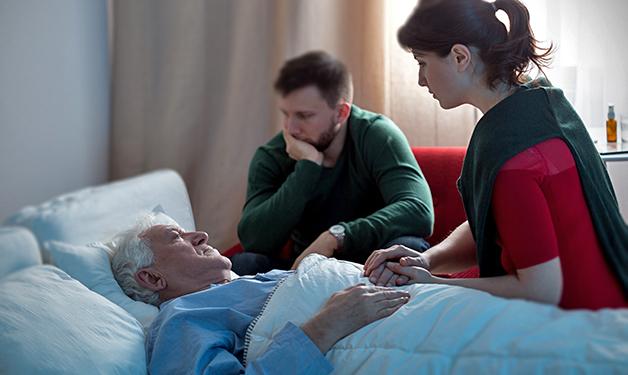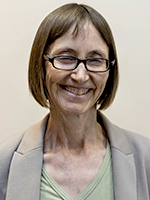
Talking openly about death helps families and elderly patients make better end-of-life decisions.
It’s hard for families to talk about death with their elderly loved ones. It’s also hard for caregivers. Research shows clinicians and staff in residential care are often reluctant to initiate conversations about dying with patients and their families. In fact, many elderly patients die without having being told their condition is terminal. Palliative care experts like Vancouver Coastal Health Research Institute research scientist Dr. Margaret McGregor say avoiding the reality of death and failing to plan for it means many elderly people undergo stressful, often detrimental medical treatment in their final days. Dr. McGregor says families need to be told what dying looks like, what to expect, and how to prepare for what might happen, rather than thinking that maybe if they go to the hospital everything will be better.

“When families don’t clearly understand the final stages of life, when that reality has not been effectively communicated to them, they have unrealistic expectations of recovery for frail, elderly loved ones. So, in the final months of life, many frail elderly are transferred back and forth to hospital when they may have been better to stay in a familiar environment receiving appropriate, gentle, palliative care.”
Dr. McGregor says hospitalization has been linked to delirium, falls, infections, adverse drug reactions, pressure ulcers and mobility-related complications in the nursing home population. Being transferred in and out of ambulances, being given CPR – which can break ribs – and being left on a bed in an emergency room hallway surrounded by noise and chaos are not experiences family members want for a loved one. But those realities are not always explained.
Dr. McGregor recently worked with Alexis Kezirian, a UBC nursing student, on a Practice Improvement Project to address the problem. The project was developed with the Vancouver Division of Family Practice, Vancouver Coastal Health (VCH) Home Hospice, VCH Practice Support Program and UBC’s Department of Family Practice, Community Geriatrics. It brought together clinicians from 15 local facilities for two interactive training sessions with experienced educators in dementia, frailty, and palliative care. Clinicians learned about staging and prognosis of dementia and frailty. And they learned how to better communicate with patients and families. Each residential care facility then implemented 9-week action period. Kezirian is now finalizing the project report.
Better communication about dying needed for residential care

Despite encouraging results related to comfort level of clinicians, there was no statistically significant drop in hospital admissions, even though clinicians reported that they increased the frequency of updating end-of-life directives. But Kezirian says there could be a few reasons for this. She says the study period was perhaps too short to capture a systemic shift. And she notes that the project took place over the winter, when influenza admissions were at their peak. Both Kezirian and Dr. McGregor are confident ongoing clinician education will enable more elderly patients to die with dignity, in a comfortable and peaceful setting, an outcome that would also mean cost savings for the health care system.


